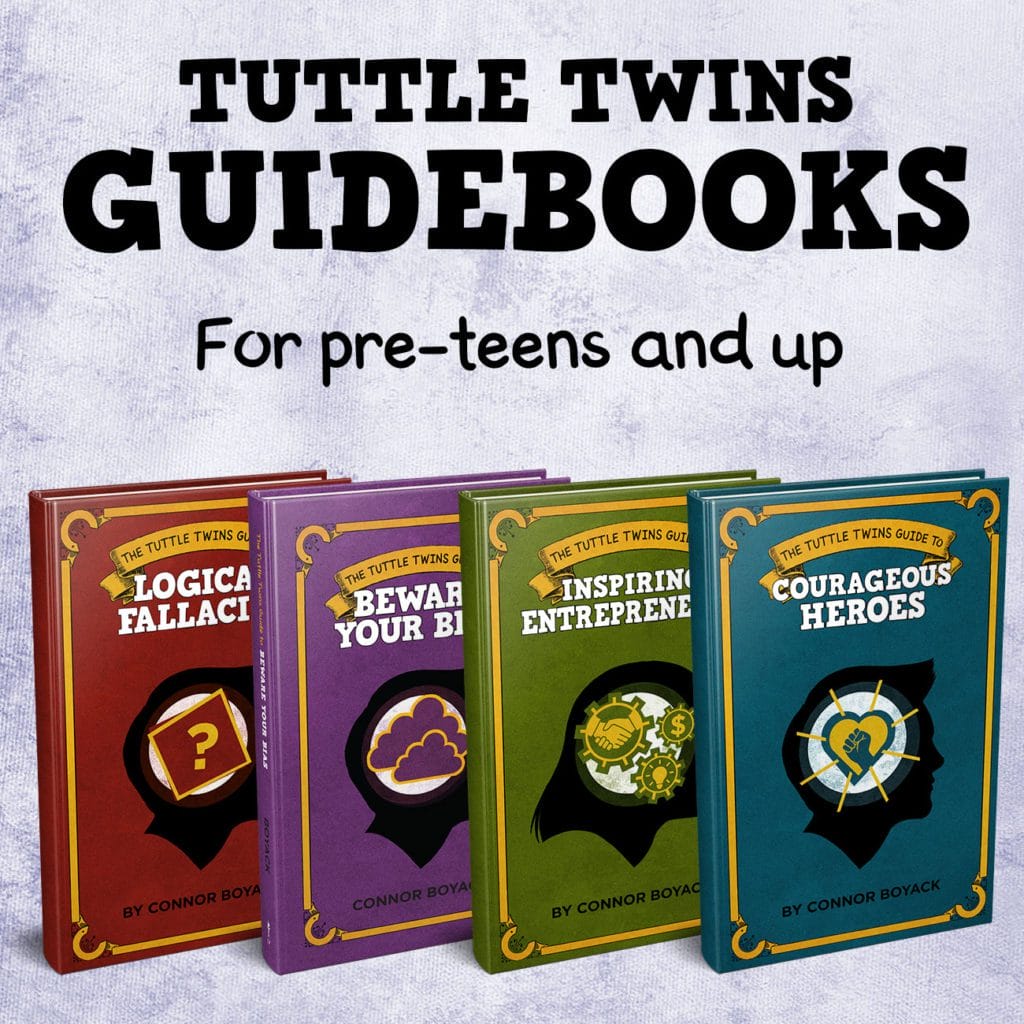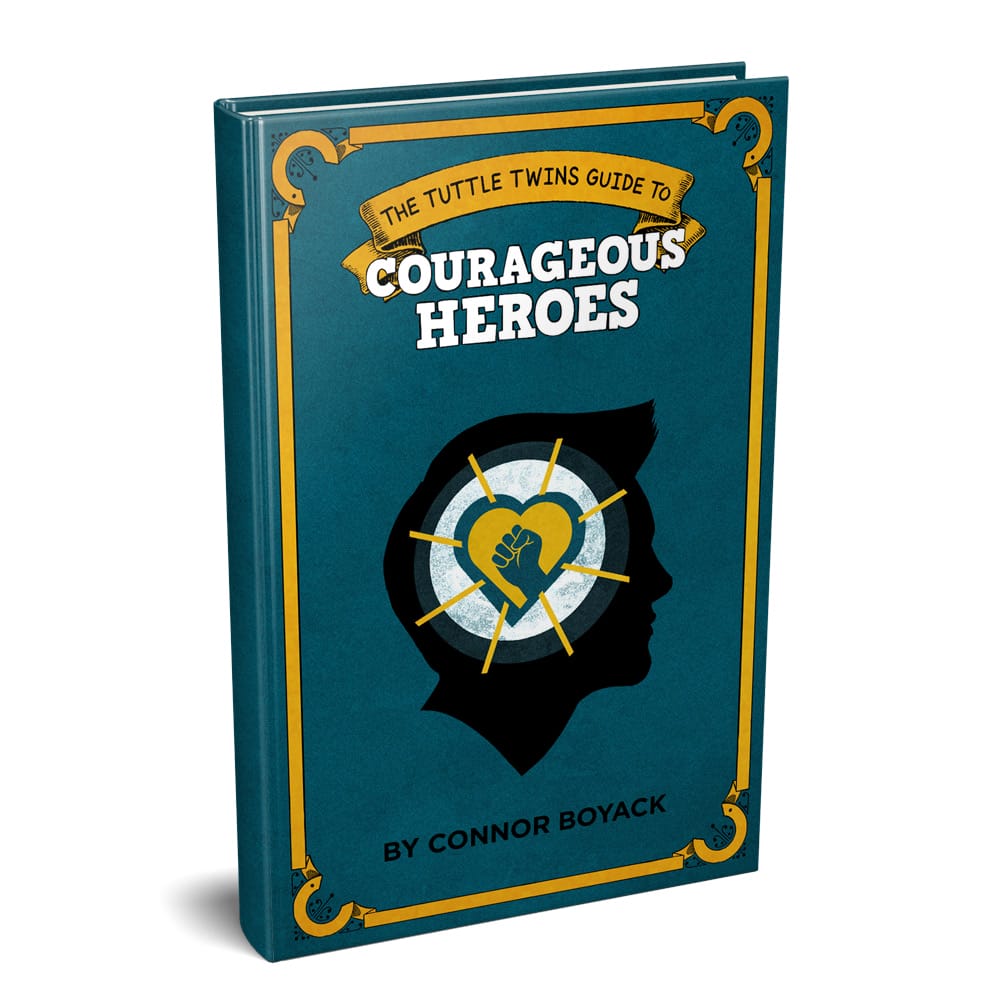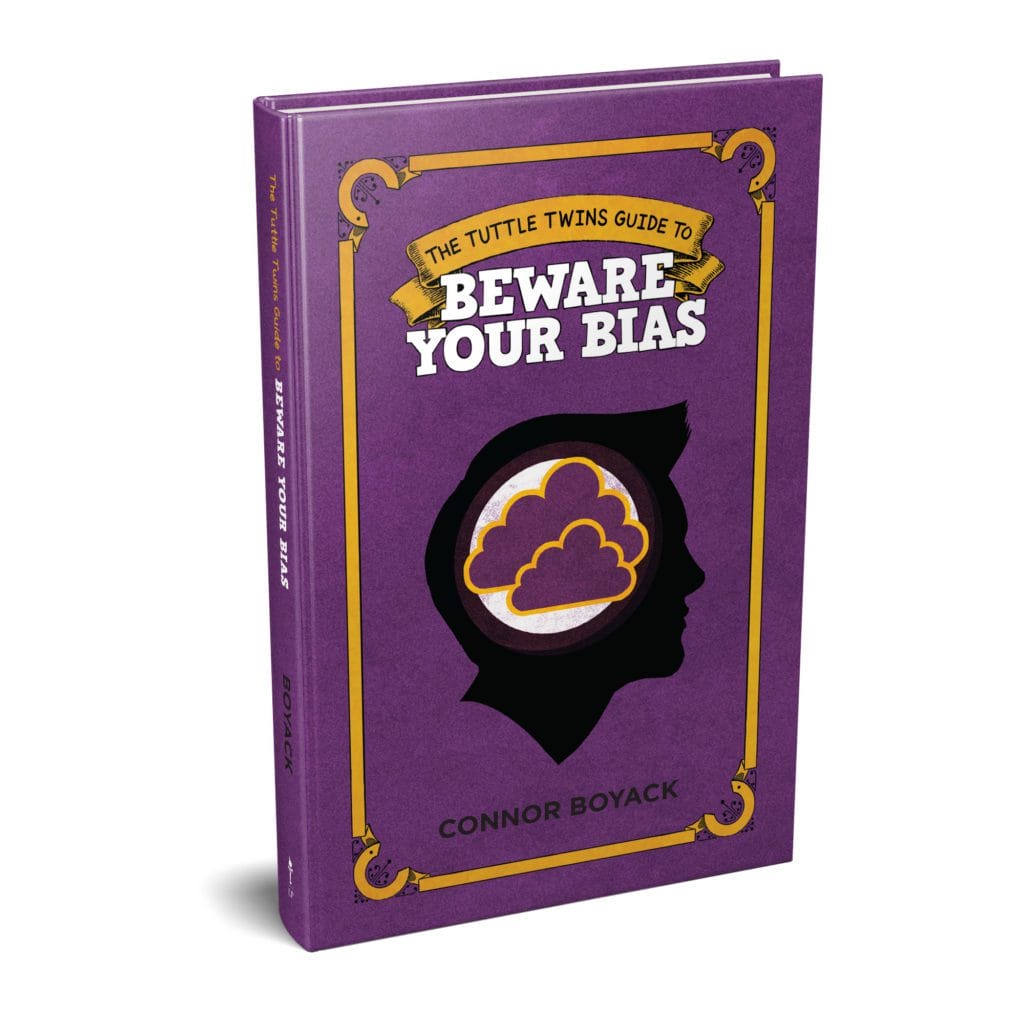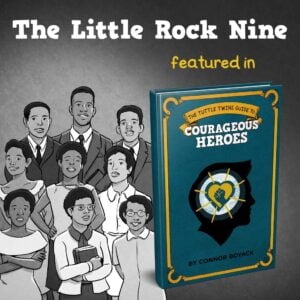
Our new guidebooks provides tons of helpful information for young people to learn from, with the teen Tuttle twins as a guide. Use this important content to become a better thinker and person!
612 pages of content across the three books — packed full of applicable information your teens will actually find interesting!

Daring men and women aren’t just found in the pages of fictional stories. In fact, history offers us a number of examples of people who stood up for what was right in the face of significant opposition. Their stories can inspire us to also be courageous when the situation calls for it.
Whether the problem is a large one, like a dictatorial state or a cultural prejudice, or a small one, such as standing up to a bully, we can resolve to be a hero and fight for what is right.
That’s why the stories in this book are so impactful—they offer us an opportunity to learn lessons from the lives of a wide variety of people and ponder how we might have acted in a similar situation.
These heroes often stand out because so many of their peers failed to act likewise. Sadly, too few seem to have the courage to oppose something that is wrong. But these stories can help us prepare to be counted as someone who will choose the right!
246 pages of content. Click here to see a sample chapter.

In a society where countless ideas are being shared, debated, and analyzed, it’s more important than ever to sift out the good ones from among the bad ones. And when people you respect and trust use arguments that sound persuasive, how can you determine if they are correct?
One of the most commonly used methods of spreading misinformation is the use of a logical fallacy—a bad argument that makes something seem truthful that actually might not be. These types of arguments are used repeatedly, and there are many different types.
Fortunately, these logical fallacies can be learned, so they can be avoided. Armed with this information, you’ll be equipped to understand when people are sharing an idea that is wrong or making a claim that isn’t true. You’ll become an expert debater by being able to point out a flaw in an opponent’s argument.
That makes this book dangerous—a guidebook for teenagers and young adults who want to explore the ins and outs of how to win arguments and point out problems in others’ ideas. Use this book wisely!
192 pages of content. Click here to see a sample chapter.

Throughout history, a certain few people have made risky decisions in an attempt to solve a problem that many people were experiencing, hoping that their new innovation or invention would be able to serve these people and that they—the entrepreneurs, as we call them—would be able to profit in return.
These risk-takers are the key drivers of the economy who create jobs and new products and services that make our lives more comfortable and convenient. The world becomes a better place through their efforts.
But entrepreneurs don’t always succeed. Indeed, their failures teach them powerful (and sometimes hard) lessons that they can learn from. They gain knowledge with each new attempt that makes their future efforts even more fruitful.
Their stories can serve as inspiration as you begin to determine your own path in life and whether being an entrepreneur is part of your journey.
174 pages of content. Click here to see a sample chapter.

We all have them. And we know everyone else does, too. But we avoid thinking about them, even though they affect our thinking deeply. What are they?
They are cognitive biases, and they lead our mind to do things that might not be in our best interest. We are all prone to being affected by them, yet hardly anyone takes the time to learn about them—and how to make sure they don’t have as great an impact on us.
That’s where this guidebook comes in, helping teens and adults learn about each bias so that we can make a concerted effort to not fall prey to their powers. Armed with this information, we can think more clearly, better understand ourselves and others, and make good decisions to benefit our lives.
This is powerful information precisely because so few people seek it. Those who read this book will have an advantage over others who are mentally manipulated without knowing it.
194 pages of content. Click here to see a sample chapter.

Don’t like the books? We’ll refund your money and you keep them. No questions asked. No risk on your end.


Our books bring families together, educate, and inspire.







See what parents just like you have to say about the Tuttle Twins books!




Connor Boyack is founder and president of Libertas Institute, a free market think tank in Utah. Named one of Utah’s most politically influential people by The Salt Lake Tribune, Connor’s leadership has led to dozens of legislative victories spanning a wide range of areas such as privacy, government transparency, property rights, entrepreneurship, education, personal freedom, and more.
A public speaker and author of over two dozen books, Connor is best known for The Tuttle Twins books, a children’s series introducing young readers to economic, political, and civic principles.
Connor lives near Salt Lake City, Utah, with his wife and two homeschooled children
Elijah Stanfield is owner of Red House Motion Imaging, a media production company in Washington.
A longtime student of Austrian economics, history, and the classical liberal philosophy, Elijah has dedicated much of his time and energy to promoting the ideas of free markets and individual liberty. Some of his more notable works include producing eight videos in support of Ron Paul’s 2012 presidential candidacy. He currently resides in Richland, Washington, with his wife April and their five children.
